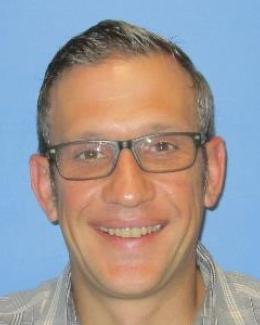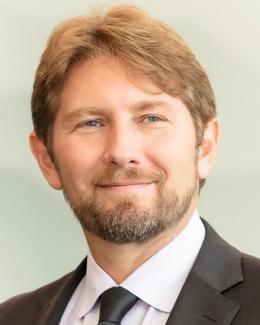Quantum Science Center Deputy Director Travis Humble led a panel discussion on the last day of the summer school. Panelists shared best practices and provided advice to the next generation of quantum researchers. Credit: David Stewart/Purdue University
From May 17 to 20, the Quantum Science Center, or QSC, held its inaugural quantum summer school. Hosted by QSC core partner Purdue University, the virtual event provided a platform for talks, workshops and discussions focused not only on furthering the field of quantum information science but also on training the future quantum workforce.
More than 400 people registered for the school, which was livestreamed on the Purdue Quantum Science and Engineering Institute’s public “Quantum Coffeehouse” YouTube channel. Researchers, postdoctoral associates and even college and high school students tuned in throughout the week to ask questions and interact with presenters in real time.
During his opening remarks, QSC Director David Dean described his formative experiences attending, speaking at and organizing similar summer schools. Through this year’s QSC school and future iterations of the event, he aims to spark creativity and encourage collaboration among quantum scientists and engineers at different stages of their careers.
When we established the QSC, creating a new summer school was always part of the plan. It’s the perfect place to ask questions, make mistakes and learn new things.
Located at the Department of Energy’s Oak Ridge National Laboratory, the QSC is one of five DOE Quantum Information Science Research Centers funded by the DOE Office of Science. The QSC summer school — the first such event held by one of these centers — featured speakers and moderators associated with both the QSC and the Quantum Systems Accelerator led by DOE’s Lawrence Berkeley National Laboratory.
These contributors also represented ORNL and DOE’s Los Alamos National Laboratory, as well as institutions in academia — Purdue, Harvard University, the California Institute of Technology, the University of New Mexico, Duke University and the University of Colorado Boulder — and industry — Microsoft, IBM, Accenture, IonQ and ColdQuanta.
Topics of conversation at the school revolved around the QSC’s three scientific focus areas: Quantum Materials Discovery and Development, Quantum Algorithms and Simulation, and Quantum Devices and Sensors for Discovery Science. Other items on the agenda included a science communication workshop and a quantum programming lab.
On the final day, a panel of experts explained the value of taking risks and becoming a lifelong learner, reaching the consensus that today’s students have the tools to create tomorrow’s technologies.
In addition to members of QSC leadership, the Postdoctoral and Graduate Student Association played an important role in making the idea for the summer school into a reality. This group also organized the Center’s first poster session.
“The lecturers who joined us and the whole team that put the summer school together made this event an important cornerstone in the QSC’s workforce development efforts,” said QSC Deputy Director Travis Humble.
To conclude the event, QSC Workforce Development Lead Alexandra Boltasseva noted that next year’s summer school, which will likely provide participants with the choice to attend virtually or in person, will continue to cultivate coordinated research efforts among the DOE quantum centers.
“It’s important to start investing in the new technology revolution by building the quantum workforce,” Boltasseva said. “As demonstrated by the passionate participants of the summer school, this field is in safe hands, and we are on the right track to enable groundbreaking discoveries.”
UT-Battelle manages Oak Ridge National Laboratory for DOE’s Office of Science, the single largest supporter of basic research in the physical sciences in the United States. DOE’s Office of Science is working to address some of the most pressing challenges of our time. For more information, visit https://energy.gov/science.— Elizabeth Rosenthal



